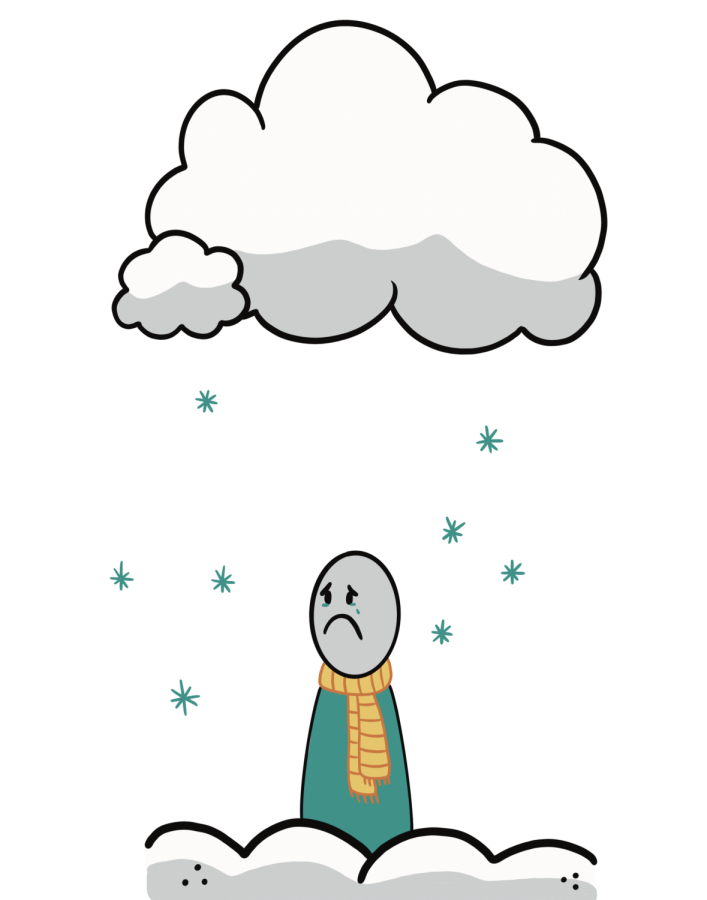SAD hits during the holidays
Students face high stress situations through a low season
November 10, 2020
The holiday season is swiftly approaching and that means seasonal depression is coming around once again to take its yearly toll.
This time, however, it has assistance in the form of pandemic depression.
For those who are unfamiliar, seasonal depression or seasonal affective disorder (SAD) as it’s officially known, generally starts in late fall or early winter.
According to the National Institute of Mental Health, symptoms generally last for four to five months out of the year.
Combined with the findings of JAMA Network Open, a monthly journal published by the American Medical Association, that during the pandemic the depression rate has tripled in U.S. adults, this could mean an even higher surge as the season progresses.
Stacy MacDonald, an undeclared freshman, has struggled with pandemic depression since the start of the year.
Despite some worries as to how SAD will contribute to the amount of stress people are already feeling, she had some tips and tricks she personally makes use of during the holiday season.
“First thing that you have to do is make time for yourself,” MacDonald said. “I like to take a bubble bath with some scented candles. Otherwise it’s just way too easy to tense up and bottle all that negativity up and let it overcome you.”
She said for those in her situation not dealing very well with the state of things in the world, it could be a good idea to opt out of the more decadent and unhealthy foods usually eaten for Thanksgiving and Christmas.
“It might not be what people’s families want, because everybody wants the turkey and gravy and all but right now it would probably be better to just grill some chicken breasts and make a salad,” MacDonald said.
William O’Brien, a research psychologist and father of a CWU student, went into his chosen profession because of a personal relationship with mental health issues.
He was happy to share some insight he felt would be good to know, especially for students who may already be feeling symptoms of depression in the time preceding SAD’s peak.
“The biggest piece of advice I can offer to anyone is make use of your support networks … I can’t speak for all parents but I’m a dad first and that means I’m here for my kids,” O’Brien said.
He also said while drinking is fine for students age 21 and over, it should not be done to excess as it won’t solve the issues leading up to it, and in some cases it could make the depression worse.
Mandy Wallace, a prospective CWU junior transfer, has experience with depression in her family and as a result has developed a number of coping mechanisms.
One bit she wanted to make clear for those who are in a more stable place mentally mirrors O’Brien’s.
“If you know somebody is going through [depression], be there for them,” Wallace said. “We’re all in this together and tomorrow you might be the one feeling like death. You’re somebody’s support so try to be the best one you can.”



